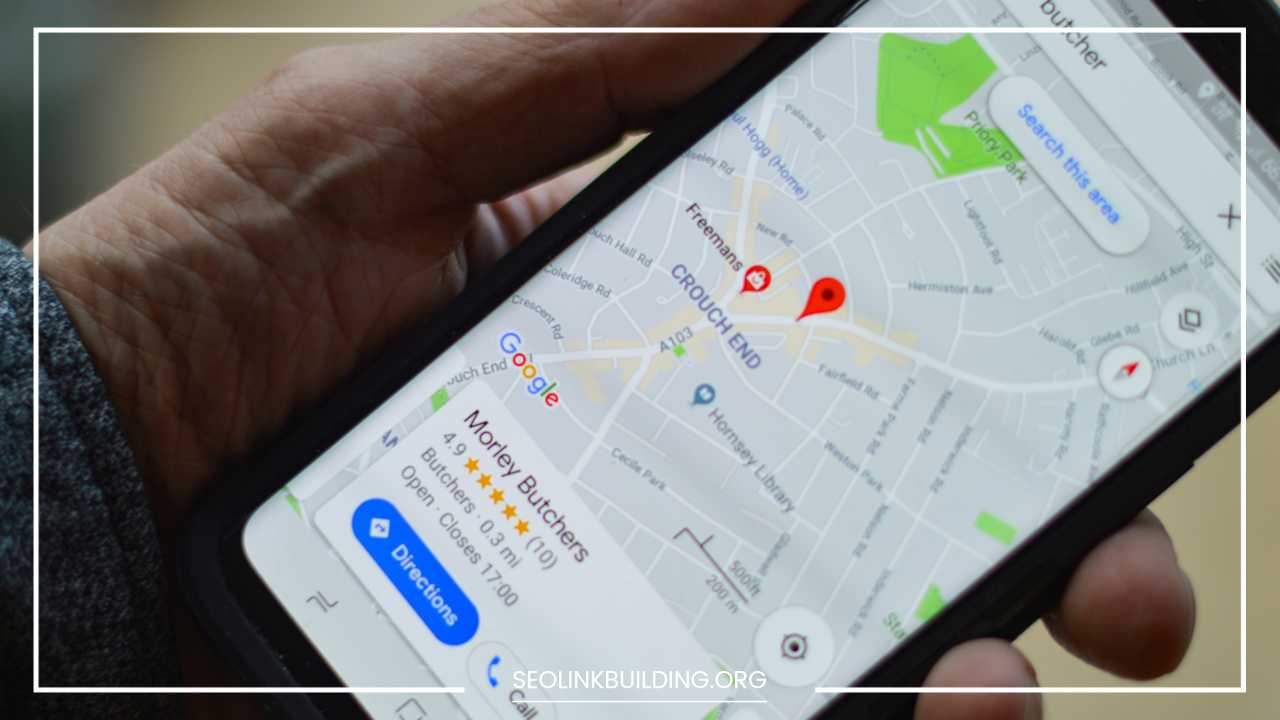Local SEO Strategy: Effective Strategies to Improve Local SEO

Local SEO Strategy
Local SEO Strategy: Improve Your Local Search Rankings with These Proven Tactics
In the digital age, local SEO has emerged as a critical pillar of marketing for businesses that serve specific geographic areas.
Whether you run a cozy coffee shop, a local plumbing service, or a boutique retail store, optimizing your online presence to attract nearby customers can significantly impact your success.
Implementing effective local SEO strategies can enhance your visibility in local search results, increase foot traffic, and ultimately drive revenue growth.
Understanding Local SEO
Before diving into actionable strategies, it’s essential to grasp the fundamentals of local SEO. Local search algorithms prioritize businesses based on relevance, proximity, and the strength of online signals. Understanding these factors is crucial for developing a successful local SEO strategy.
Key Components of Local SEO
- NAP Consistency: Your Name, Address, and Phone Number (NAP) should be consistent across all online platforms. Inconsistencies can confuse search engines and potential customers, negatively impacting your local rankings.
- Google My Business (GMB): Your GMB profile is your business’s digital storefront on Google. It’s often the first impression potential customers will have of your business, making it essential to optimize this profile effectively.
- Local Citations: Citations are mentions of your business on third-party websites, directories, and social media platforms. They help establish your business’s credibility and can enhance your visibility in local search results.
- On-Page Optimization: This involves optimizing your website’s content, structure, and metadata for local keywords and search intent. It’s essential to ensure that your site is user-friendly and informative.
- Backlinks: High-quality backlinks from reputable local websites signal to search engines that your business is credible and relevant. Building these connections can enhance your site’s authority.
- Social Media Engagement: Actively engaging with your local community on social media platforms can boost your brand’s visibility and drive traffic to your website.
Effective Local SEO Strategies
Now that we understand the key components, let’s explore effective strategies to improve your local SEO.
1. Claim and Optimize Your Google My Business Profile
Your Google My Business profile is one of the most critical elements of local SEO. A well-optimized GMB profile can significantly improve your visibility in local search results.
- Complete and Accurate Information: Fill out all relevant fields in your GMB profile, including your business name, address, phone number, website, hours of operation, and a detailed description of your products or services. This information should match the details on your website and other online platforms to ensure consistency.
- High-Quality Photos: Add high-resolution images of your business, products, and services. Visual content can greatly enhance your profile’s appeal and attract potential customers. Consider adding photos of your team, interior and exterior shots of your location, and images that showcase your products in action.
- Customer Reviews: Encourage customers to leave reviews on your GMB profile. Positive reviews can significantly improve your local search rankings and enhance your business’s reputation. Consider implementing a review request process, such as sending follow-up emails after a service or purchase.
- Post Regularly: Utilize the GMB posting feature to share updates about your business, special promotions, events, or industry news. Regular activity not only keeps your profile engaging but also signals to Google that your business is active.
2. Optimize Your Website for Local Keywords
Optimizing your website for local keywords is essential for improving your visibility in local search results.
- Keyword Research: Identify relevant local keywords that your target audience might search for. Use tools like Google Keyword Planner, Ahrefs, or SEMrush to discover popular terms and phrases related to your business. Look for keywords that include local identifiers, such as city names or neighborhoods.
- On-Page Optimization: Integrate your target keywords naturally throughout your website’s content, including in titles, headings, meta descriptions, and body text. Ensure that your content is informative and valuable to users. Avoid keyword stuffing, which can harm your SEO efforts and user experience.
- Location-Specific Landing Pages: If your business operates in multiple locations, create separate landing pages for each area. This targeted approach helps improve your rankings for specific local queries. Include unique content relevant to each location, such as local testimonials, case studies, or community involvement.
3. Build Local Citations
Building local citations can enhance your online presence and authority.
- Directory Listings: Submit your business to major online directories such as Google My Business, Bing Places, Yelp, and Yellow Pages. Ensure that your NAP information is consistent across all listings.
- Industry-Specific Directories: Identify and list your business in directories specific to your industry or niche. For instance, if you own a restaurant, consider local food or dining directories that cater to your audience.
- Local Chamber of Commerce: Joining your local chamber of commerce not only boosts your credibility but also provides valuable networking opportunities. Ensure your business is listed in their directory.
4. Encourage Customer Reviews
Customer reviews play a pivotal role in local SEO, influencing both search rankings and consumer trust.
- Ask for Reviews: After a successful transaction, politely ask satisfied customers to leave reviews on your GMB profile and other relevant platforms. You can create a follow-up email template to make this process easier.
- Respond to Reviews: Engage with both positive and negative reviews. Responding promptly and professionally shows potential customers that you value their feedback and are committed to providing excellent service.
- Showcase Reviews: Highlight positive reviews on your website and social media. This can build trust with potential customers and encourage them to choose your business over competitors.
5. Leverage Social Media
Social media is a powerful tool for enhancing your local SEO efforts and engaging with your community.
- Create Local-Focused Content: Share content that resonates with your local audience, such as community news, events, or local recommendations. This not only builds engagement but also positions your business as a community-oriented entity.
- Engage with Local Influencers: Collaborate with local influencers or businesses to broaden your reach. Influencers can help promote your brand to their followers, driving traffic to your profile and website.
- Use Local Hashtags: Incorporate location-specific hashtags in your posts to increase visibility in local search results. This strategy helps potential customers discover your business through social media platforms.
6. Optimize for Mobile
With the rise of mobile searches, optimizing for mobile is essential for local SEO.
- Mobile-Friendly Website: Ensure your website is responsive and optimized for mobile devices. A mobile-friendly design enhances user experience and can positively impact your search rankings.
- Local Mobile Search Optimization: Optimize your content and metadata for local search queries, as many mobile searches are location-specific. Consider implementing features like click-to-call buttons to make it easy for mobile users to contact you.
7. Build Local Backlinks
Acquiring backlinks from reputable local sources can improve your website’s authority and visibility.
- Guest Posting: Write guest posts for local blogs or websites related to your industry. This can enhance your online presence and provide valuable backlinks. Ensure your guest posts include links back to relevant pages on your website.
- Directory Submissions: Submit your business to local directories that allow backlinks. This not only helps with SEO but also enhances your business’s credibility.
- Local Partnerships: Collaborate with other local businesses for link exchanges or joint promotions. For example, if you partner with a local event, ensure your website links to their event page, and vice versa.
8. Track and Analyze Your Results
Monitoring and analyzing your local SEO efforts is crucial for ongoing improvement.
- Google Analytics: Use Google Analytics to track your website traffic, conversions, and user behavior. Analyze which pages are performing well and which may need optimization.
- Keyword Ranking Tools: Regularly check your website’s rankings for target keywords. Tools like Ahrefs, Moz, or SEMrush can provide insights into your ranking performance and help you identify opportunities for improvement.
- Local SEO Tools: Utilize specialized local SEO tools, such as BrightLocal or Moz Local, to analyze your online presence and identify areas for enhancement. These tools can help you track local rankings, citations, and reviews.
9. Create High-Quality Content
Content marketing plays a vital role in local SEO. By producing valuable and relevant content, you can attract and engage your target audience.
- Blog Posts: Write informative blog posts about local topics, events, or industry news. This can position you as an authority in your field and attract local visitors to your website.
- Local Guides: Create comprehensive local guides that provide useful information about your area. This could include recommendations for local attractions, restaurants, or services. Such content can be highly shareable and help drive traffic to your site.
- Visual Content: Utilize videos and infographics to convey information engagingly. Visual content is often more shareable and can enhance user engagement on your site. Consider creating video tutorials, behind-the-scenes looks at your business, or community highlights.
10. Monitor Competitors
Keeping an eye on your local competitors can provide valuable insights for your own strategy.
- Competitor Analysis: Analyze what local competitors are doing in terms of their SEO strategies. Look at their GMB profiles, website content, and social media presence. Identify their strengths and weaknesses to find opportunities for your business.
- Identify Opportunities: Look for gaps in their strategies that you can exploit. For example, if a competitor lacks a strong social media presence, you can focus on building your brand through those channels. You might also identify keywords they are ranking for that you can target.
11. Participate in Local Events
Engaging in local events can boost your visibility and strengthen community ties.
- Sponsorships: Consider sponsoring local events, festivals, or sports teams. This can enhance your brand’s visibility and build goodwill in the community. Ensure that your business is prominently featured in event marketing materials.
- Networking: Attend local networking events to connect with other business owners and potential customers. Building relationships can lead to referral opportunities and partnerships that benefit your business.
- Host Events: Consider hosting your own events, such as workshops, community service days, or open houses. This can attract local customers and generate positive publicity for your brand.
12. Stay Updated with SEO Trends
The world of SEO is constantly evolving, and staying informed about the latest trends and algorithm updates is essential.
- Continuous Learning: Regularly read industry blogs, attend webinars, and participate in SEO forums to stay up-to-date with changes in search algorithms and best practices. Websites like Moz, Search Engine Journal, and Neil Patel’s blog are excellent resources.
- Adapt Your Strategy: Be prepared to adjust your local SEO strategies in response to new information or shifts in consumer behavior. Flexibility is key to maintaining your rankings and visibility.
13. Utilize Structured Data Markup
Implementing structured data markup on your website can improve your visibility in search results.
- Schema Markup: Use schema markup to provide search engines with more information about your business, such as location, operating hours, and services offered. This can help improve your visibility in local search results and increase the likelihood of appearing in rich snippets.
- Event Schema: If you host events, consider using event schema markup to provide detailed information about the event, including date, time, location, and ticketing information. This can enhance your event’s visibility in search results.
14. Engage in Community Involvement
Being actively involved in your local community can enhance your brand reputation and visibility.
- Sponsorships and Donations: Sponsor local charities, sports teams, or community events. This not only builds goodwill but also provides opportunities for backlinks and mentions in local news.
- Volunteer Work: Encourage your employees to participate in volunteer work within the community. This can foster a positive company culture and enhance your brand’s reputation as a community-oriented business.
15. Use Email Marketing to Drive Local Engagement
Email marketing can be an effective way to engage with your local audience and promote your business.
- Newsletter Sign-Up: Encourage website visitors to sign up for your email newsletter. This allows you to communicate directly with potential customers and keep them informed about promotions, events, and news.
- Targeted Campaigns: Create targeted email campaigns for different segments of your audience. For instance, you can send exclusive offers to local customers or promote upcoming events that may interest them.
Final Thoughts
Implementing these effective local SEO strategies consistently can significantly enhance your online visibility and attract more customers to your business.
Remember, local SEO is not a one-time effort but an ongoing process that requires regular monitoring, analysis, and adjustment.
As you refine your approach and adapt to changing trends, you will be better positioned to succeed in the competitive local marketplace.
Embrace these strategies, remain committed to your goals, and watch your business thrive in the local search landscape.
With persistence and a well-structured local SEO strategy, you can establish your business as a go-to option for customers in your area.













